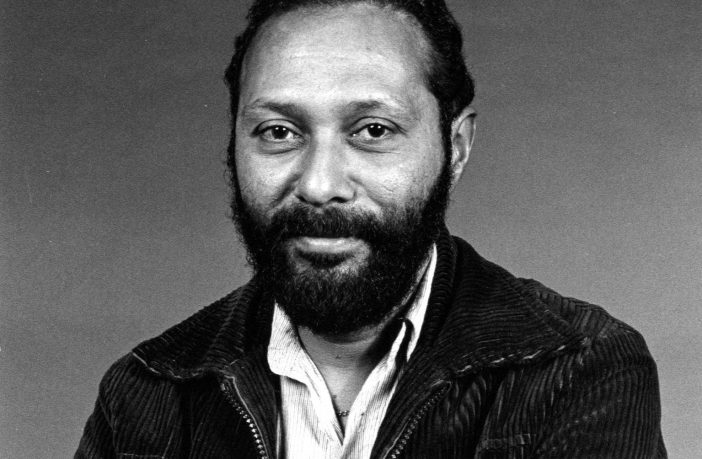Alan Shipman looks back to 1960 when the late Stuart Hall (former Professor of Sociology at the OU) first emerged as a leading Left thinker and pioneering social scientist.
January 1960 began with a fresh challenge for Stuart Hall, a young teacher from Jamaica still adjusting to London life after finishing his English Literature studies. He’d just been handed the full-time editorship of the New Left Review, and had the onerous task of preparing its first edition for an official launch at St Pancras Town Hall.
The Review was the fiery child of a fractious union – between The Reasoner and the Universities and Left Review (ULR), two journals that sang from the same hymn-sheet but in very different tones. Regular contributors Edward (EP) Thompson and John Saville had shaken The Reasoner out of its pro-Soviet complacency after the invasion of Hungary in 1956; but its roots in the British Communist Party were still very visible.
Formative influence
The ULR was keener on forging a ‘new left’ within the confines of western democracy. Raymond Williams, the media-studies pioneer who inspired its founders, had been Hall’s formative influence while tutoring in Oxford.
The decision to merge the two titles was partly an intellectual one: their creators saw common ground in Thompson’s vision of a distinctive British radical tradition. But it also met the practical need to combine circulations in order to stay financially afloat – a union of principle and pragmatism soon reflected in the politics it conveyed.

Antagonism between the ‘revolutionary’ and ‘reformist’ left has been traditionally every bit as fierce as between left and right. The way Hall calmed the battle, and rallied the two factions behind coherent themes, had a decisive impact on British political development as the left re-aligned against the challenge of the ‘new right’, triumphant under Margaret Thatcher and Ronald Reagan from 1979. Hall also broadened the debate, from economic issues centred on how to manage the Budget and what to nationalise into issues of culture, philosophy, social identify and history.
Within five years of the New Left Review launch, a Labour government had been returned after 13 years of reinvigorated Conservative rule. Under Harold Wilson’s leadership, Labour still listened to trade unions and cared about the less well-off. But it saw their condition as best improved by modernising industry, not disrupting it; and by amalgamating traditional pathways so that working- and middle-class households competed equally to enter universities and the professions, rather than going down separate pathways.

Hall only occasionally published his own work in the Review and with the merger successfully consolidated he had passed the editorship on by 1962. His resumed academic career made him the leading figure in Birmingham’s Centre for Contemporary Cultural Studies from 1964-1979, and then Professor of Sociology at the Open University from 1979 to his retirement in 1997. But in his short time as editor, the NLR became a key forum for progressive intellectual exchange, and the core of a publishing house that now includes the influential Verso imprint.
Hall remained emeritus Professor of Sociology at the OU until his death in February 2014. He can be heard reflecting on multiculturalism, and many other ideas in a life of research and political activism, in a 2011 Thinking Allowed interview: http://bbc.co.uk/programmes/b00zfkfn
Find out more about Stuart Hall and other leading researchers at the OU.
Alan Shipman is an economics lecturer at the OU, with research interests including power and elites, Chinese multinationals and the spread of economic ideas.



